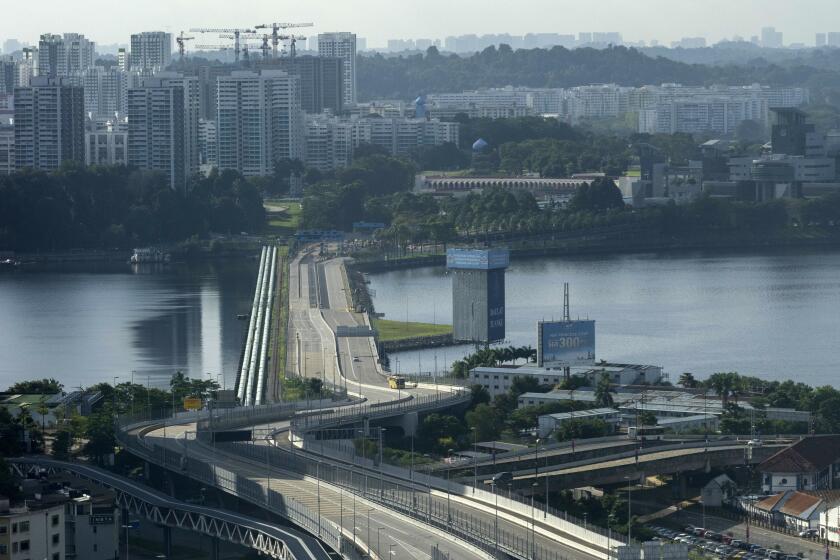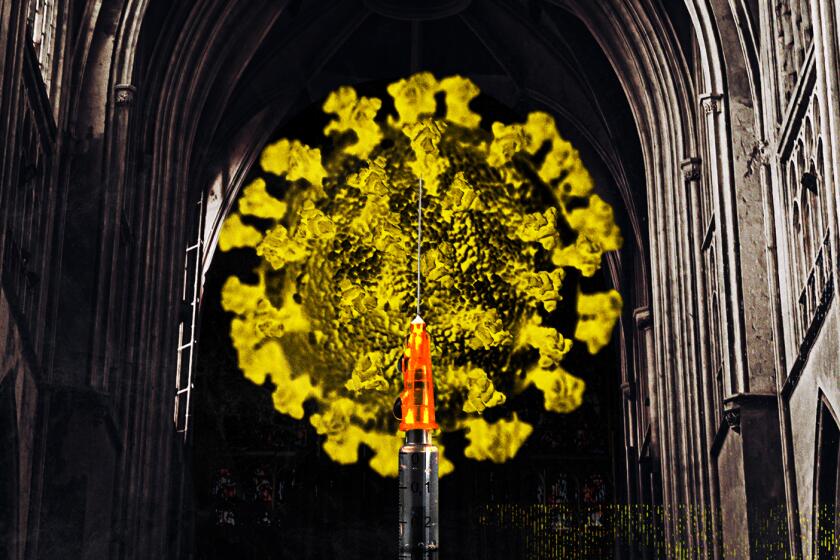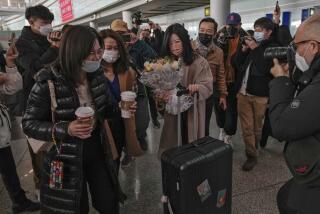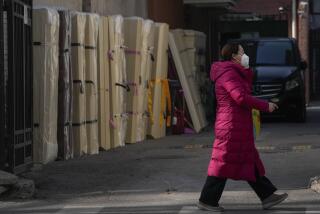Coronavirus cases spike across Asia after Lunar New Year celebrations
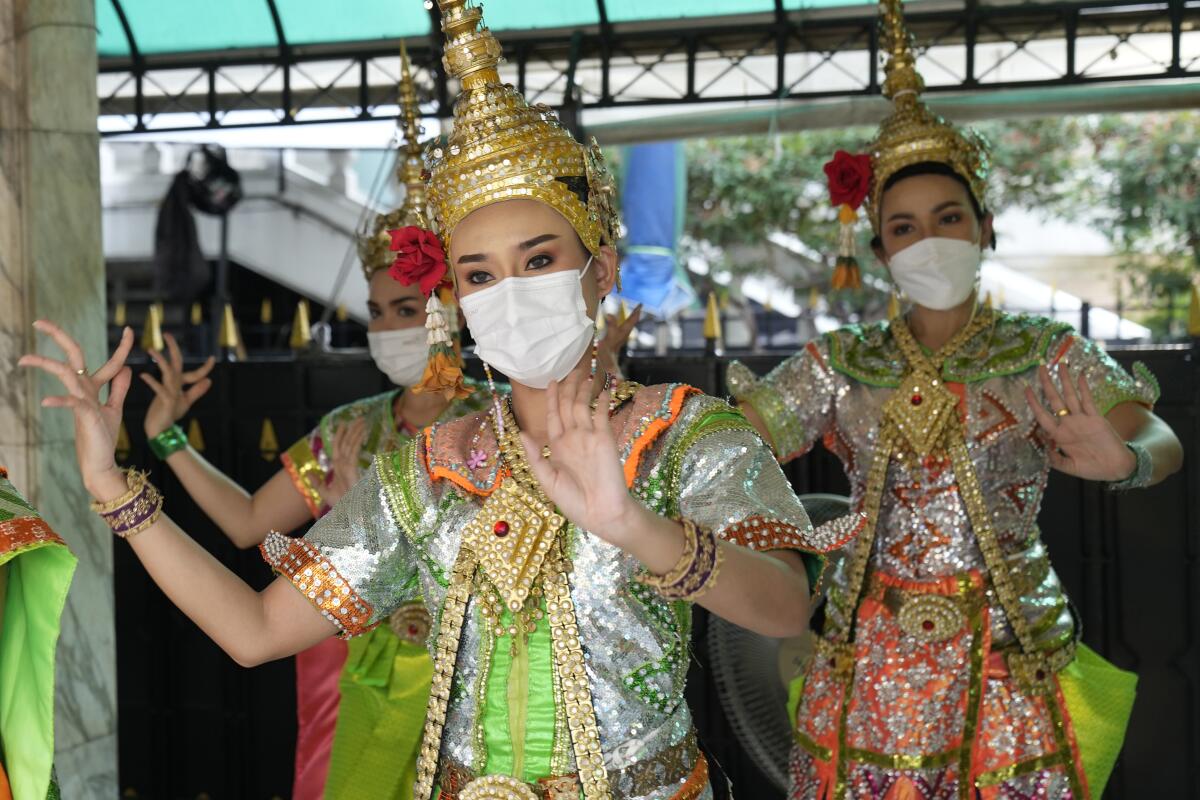
SINGAPORE — Many Asian countries are facing a spike in coronavirus infections after the widely celebrated Lunar New Year holidays, as health officials grapple with the highly transmissible Omicron variant and expectations that numbers will continue to rise in coming weeks.
The Lunar New Year, which is China’s biggest holiday, was celebrated across Asia on Tuesday even as pandemic restrictions in many countries kept crowds and family outings to a minimum.
Hong Kong’s authorities are confronting record cases that are straining its zero-tolerance COVID policy. On Monday, the city reported a new high of 614 local infections.
“We expect there will be more cases coming in a few days. We consider this as some effects after the holiday events and clusters,” Edwin Tsui, an official with Hong Kong’s Center for Health Protection, told reporters Monday. “With our current containment measures, we hope we can still contain the disease.”
Hong Kong currently requires all cases to be hospitalized. On Monday, authorities announced that close contacts of infected people would be allowed to isolate at home, starting from Tuesday. Those who test positive while in home isolation will be transferred to a hospital.
China’s zero-tolerance policy aims to totally stamp out the coronavirus within its borders, even as many other countries shift their approach to living with it.
A return to border and social restrictions could upend months of progress in countries such as Singapore, often a bellwether for the rest of Asia.
In Singapore, a dramatic rise in infections followed last week’s holiday, with cases tripling to 13,000 on Friday.
Daily infections dipped to 7,752 on Sunday, amid restrictions that include limiting capacity in restaurants and capping the number of unique visitors to each household.
Singapore has reported more than 100,000 cases over the last month, although more than 99% of the cases are mild or asymptomatic.
Across Asia, authorities are confronting a similar pattern as the Omicron variant becomes dominant. But health officials in several countries report that Omicron surges are not driving hospitalizations or deaths as high as the previous Delta variant.
After two years of some of the world’s strictest pandemic border controls, Australia will begin letting in vaccinated tourists and business travelers.
In Japan, nearly 90,000 new cases nationwide were reported Sunday, including 17,526 in Tokyo, as local Omicron infections showed no signs of slowing.
Experts say the infections are now spreading to vulnerable older people, who are beginning to fill more hospital beds. Less than 5% of the country’s population has received their third dose of the COVID-19 vaccine.
Local outbreak numbers are similarly rising in Indonesia, edging toward the caseloads that marked the height of last year’s devastating Delta outbreak.
On Jan. 6, Indonesia recorded 533 new coronavirus cases and seven deaths. A month later, on Sunday, the daily figure had soared to 36,057. Daily deaths have also climbed to 57, almost four times the rate a week ago.
The mayor of Canada’s capital declared a state of emergency as protesters opposed to COVID-19 restrictions continued to paralyze Ottawa’s downtown.
In Thailand, officials on Monday reported more than 10,000 daily cases for the third day in a row, but the Department of Disease Control said that the number of severely ill patients was dropping, and the fatality rate has remained stable.
Department chief Opas Karnkawinpong said that Thailand might consider relaxing some of the country’s pandemic restrictions, as the Omicron variant seemed to be less severe in its effects.
“The global situation of COVID-19 seems to be moving in the same direction,” Karnkawinpong was quoted as saying in the Bangkok Post. “Many countries have started to ease measures despite spikes in daily infections.”
In other countries where the Lunar New Year is a major holiday, governments are likewise on high alert ahead of expectations that Omicron will continue to stoke higher infections.
Breaking News
Get breaking news, investigations, analysis and more signature journalism from the Los Angeles Times in your inbox.
You may occasionally receive promotional content from the Los Angeles Times.
New cases in Malaysia have been trending higher, with the health ministry reporting 11,034 on Monday. The rise came after the Lunar New Year, when many Malaysians travel, but health officials said most of the cases were asymptomatic or bore light symptoms.
Top health official Noor Hisham Abdullah has warned that daily cases could double by the end of March and urged Malaysians to get their booster shots. Some 98% of adults in the country have completed their two-dose vaccinations, and half of them have received a third shot.
In South Korea, health experts warn that the country may see daily caseloads of up to 170,000 by late February.
The country reported 38,691 new cases of the coronavirus, a nine-fold increase from the levels seen in mid-January, when Omicron became the country’s dominant strain.
A cottage industry has sprung up to help people justify their decisions to refuse vaccination against COVID-19.
In Vietnam, authorities have warned that infections may rise after the popular new year holiday.
Vietnam reported 192 cases of the Omicron variant in the last month, with most of those showing only mild symptoms or no symptoms at all. With low hospitalization and death rates, Vietnam had previously moved toward resuming most social activities.
The Philippines has moved to ease coronavirus restrictions and open its doors to tourists as outbreak numbers eased to about 8,300 on Sunday, down from a peak of 39,000 in mid-January.
But social-distancing restrictions remain in place amid fears of an outbreak ahead of the country’s presidential and general elections May 9. Campaigning begins on Tuesday, with a ban on handshakes, kissing, hugging and large crowds.
More to Read
Sign up for Essential California
The most important California stories and recommendations in your inbox every morning.
You may occasionally receive promotional content from the Los Angeles Times.
